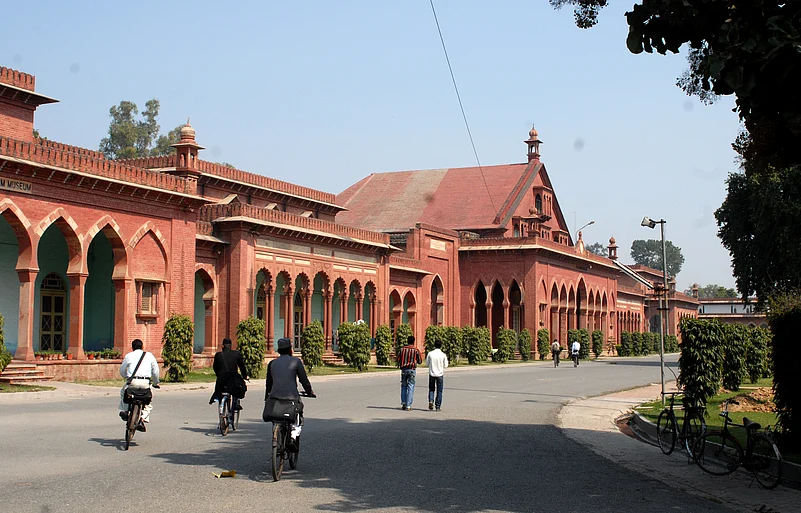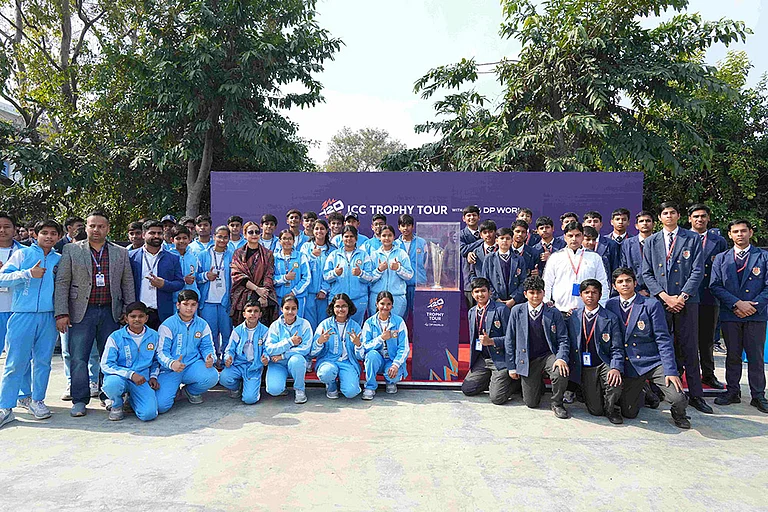In the on-going case relating to the minority status of Aligarh Muslim University (AMU), the Supreme Court has asked the Union Government to furnish data on the religious-wise data of students across institutes of national importance (INI) in the country, on the sixth day of the hearing.
The questions of law that are being argued in this case are whether an educational institution can be granted minority status under Article 30 of the Indian Constitution, and whether a centrally-funded university established by parliamentary statute can be designated as a minority institution.
In response to the criticism that the 1967 judgement by the SC drew where it did not recognise AMU's rights as a minority educational institution, the Parliament had passed an amendment to the AMU Act that explicitly defined its minority status.
The amendment defined the university as “the educational Institution of their choice established by the Muslims of India, which originated as the Muhammadan Anglo-Oriental College, Aligarh and which was subsequently incorporated as the Aligarh Muslim University.”
In 2005, the Allahabad High Court examined the 1981 amendment that officially declared AMU as a minority institution and nullified the amendment owing to its overriding an existing judicial verdict – the one passed in 1967. This was followed by eight review petitions, including one by the Union of India (with Congress at the centre) and AMU, before the Supreme Court against the Allahabad High Court order. The NDA, repealed the petitions in 2016, maintaining its stand against recognising AMU's minority rights. The matter was then referred to a seven-judge bench by a three-judge bench led by then CJI Ranjan Gogoi in 2019.
A 7-judge Constitution Bench comprising the Chief Justice of India DY Chandrachud, Justice Sanjiv Khanna, Justice Surya Kant, Justice JB Pardiwala, Justice Dipankar Datta, Justice Manoj Misra and Justice Satish Chandra Sharma have asked solicitor general Tushar Mehta, who represented the Centre in the case to provide data to reflect the religious compositions of such institutes of national importance and corroborate the argument that he put in front of the bench against recognising the rights of AMU as a minority institution.
Pointing out that Article 15(5) of the Constitution, which introduced SC/ST/SEBC reservation in higher educational institutions, does not apply to institutions with a minority status, Mehta said, "Therefore, the Aligarh Muslim University...one of the finest universities recognized would not have reservations for SC, ST and SEBC and they would have at least 50% reservation for Muslims. So a deserving candidate of a Scheduled Caste,, Scheduled Tribe or a Socially and Educationally Backward Class would not have the reservation but a person having all economic everything under based on his religion, would have reservation in AMU," according to a report by LiveLaw.
Arguing that no other institution recognised as one of national importance by a parliamentary statue, is a minority institution, Mehta's written statements read, “Owing to the obviously secular ethos and nature of the nation and the Constitution, considering the fact that AMU is an institution of educational ‘national character’, it cannot be considered to be a minority institution irrespective of the question whether it was established and administered by the minority at the time of inception or not,” as quoted on a report by The Hindustan Times.

























